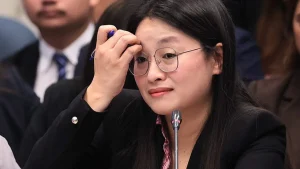
Via RMN Manila
A historic stride has been made as the House Committee on Suffrage and Electoral Reforms greenlights House Bill 6770, a measure aiming to amend the Overseas Voting Act of 2013 (Republic Act 10590). This bill opens the door for the introduction of internet voting for Overseas Filipino Workers (OFWs), potentially premiering in the upcoming 2025 midterm elections.
Leading the charge is OFW Party-list Representative Marissa Magsino, who has been a staunch advocate for enhancing the electoral experience of OFWs confronted with geographical barriers. The proposition to employ internet voting holds the potential to streamline the voting process for OFWs and drive greater participation.
Recent figures from the Commission on Elections (COMELEC) emphasize the urgency of this initiative. Of the approximately 12 million overseas Filipinos, a mere 1.69 million registered for the 2022 elections, with a paltry 600,000 exercising their franchise. These statistics underscore the need to modernize the voting process for OFWs, as pointed out by Representative Magsino.
A recent milestone in this direction was COMELEC’s execution of an internet voting demonstration, which witnessed active engagement from the OFW Party-list. The demonstration was aimed at showcasing the viability and security of online voting for overseas Filipinos.
This proposal has garnered support from notable quarters, including House Ways and Means Committee Chairman and Albay 2nd District Representative Joey Sarte Salceda. This endorsement reflects the growing consensus on the necessity of adapting the electoral system to the digital era.
Nevertheless, amidst the excitement surrounding this innovative approach, concerns regarding the security, integrity, and privacy of the internet voting system loom large. Ensuring robust cybersecurity and auditability of the system is pivotal to safeguarding the integrity of the voting process.
The formulation of the proposal’s language must be meticulous and all-encompassing to eliminate any potential vulnerabilities to manipulation. Collaboration with experts from diverse domains such as technology, law, and politics will be pivotal in constructing a comprehensive framework for internet voting.
While challenges and apprehensions persist, this proposal marks a significant leap toward harnessing technology to amplify the political participation of OFWs. The potential impact of internet voting in boosting voter engagement and representation is immense, and the nation anticipates the unfolding of this proposal’s legislative journey.


